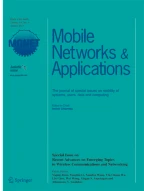Abstract
With the development of global economy, the amount of banknotes is rapidly increasing. However, in the circulation process of banknotes, banknotes are readily torn or contaminated. The broken or contaminated banknotes should be retrieved by banks to keep the steady development of the economy. The banknotes sorting machine is a high-technology product with optical-mechanical-electrical integration, which utilize classification algorithms of new and used banknotes as their key algorithm. However, current existing banknotes classification methods suffer from time consuming and low accuracy. In this paper, through analyzing the feature of defects and contaminations in a gray-scale image, we propose an algorithm to classify new and old banknotes into five levels based on the statistical parameters of the feature points in a gray-scale image, gray level-gradient co-occurrence matrices and a multi-DAG-SVM classifier, which can be easily adopted by banknotes sorting applications. Experimental results show that the proposed method is a promising potential application with superior calculating speed and classification efficiency.
Similar content being viewed by others
References
Massoud N (2005) How should central banks determine and control their bank note inventory? J Bank Financ 29(12):3099–3119
Muro FD, Theodore JN (2013) Money isnt everything, but it helps if it doesnt look used: How the physical appearance of money influences spending. J Consum Res 39(6):1330–1342
Kang D, Omatu S (1996) Application of neural network in order to discriminate new and used bills. In: 1St asian-pacitic conf on simulated evolution and learning, Tajeon, Korea, pp 481–488
Kang D, Raveendran P, Omatu S (1998) Algorithm to discriminate between new and used bills using a neural network. In: Proceedings of the ninth international workshop on, database and expert systems applications. IEEE, pp 367–372
Jiang YF, Li X, Dong JW (2008) A method for quality examination of the fifth edition rmb based on image recognition. Journal Harbin Univ.SCI.and Tech. 13(3):27–30
Dong JW, Wei ZY, He JL (2009) Simulation on identifying algorithm of paper notes old degree based on color image. Journal Harbin Univ.SCI.and Tech. 14:99–102
Wang H, Chen L, Xiao SN (2010) Study on algorithm of classification of new and used notes based on bp-lvq neural network. Optics and Optoelectrong Technology 8(4):64–67
Gai S, Yang G, Wan M (2013) Employing quaternion wavelet transform for banknote classification. Neurocomputing 118:171–178
Gai S, Yang G, Zhang S (2013) New feature extraction approach for bank note classification using quaternion wavelets. J Intell Fuzzy Syst 25(3):685–694
Mousavi SA, Meghdadi M, Hanifeloo Z, Sumari P, Arshad MRM (2015) Old and worn banknote detection using sparse representation and neural networks. Indian Journal of Science and Technology 8(10):913
Ali Fattouh AM (2015) A non-parametric approach for paper currency recognition. International Journal of Computer Science and Software Engineering (IJCSSE) 4(5):121–125
Youn S, Choi E, Baek Y, Lee C (2015) Efficient multi-currency classification of cis banknotes. Neurocomputing 156:22–32
Eldefrawy MH, Khan MK (2015) Banknote validation through an embedded rfid chip and an nfc-enabled smartphone. Math Probl Eng 2015
Sun B, Li J (2008) The recognition of new and old banknotes based on svm. In: Second international symposium on, intelligent information technology application, 2008. IITA’08, vol 2. IEEE, pp 95–98
Gogoi M, Ali SE, Mukherjee S (2015) Automatic Indian currency denomination recognition system based on artificial neural network. In: 2nd international conference on, signal processing and integrated networks (SPIN), 2015. IEEE, pp 553–558
Liu C, Liu H (2015) Damaged rmb recognition algorithm based on statistical feature. Dimension 2(4)
Ishigaki T, Higuchi T (2009) Dynamic spectrum classification by kernel classifiers with divergence-based kernels and its applications to acoustic signals. International Journal of Knowledge Engineering and Soft Data Paradigms 1(2):173–192
Wang P, Liu P (2008) Invariant features extraction for banknote classification. In: Proceedings of the 11th joint conference on information science
Kim CW, Koivo AJ (1994) Hierarchical classification of surface defects on dusty wood boards. Pattern Recogn Lett 15(7):713–721
Ojala T, Pietikainen M, Maenpaa T (2002) Multiresolution gray-scale and rotation invariant texture classification with local binary patterns. IEEE Trans Pattern Anal Mach Intell 24(7):971–987
Xie XH (2008) A review of recent advances in surface defect detection using texture analysis techniques. Electronic Letters on Computer Vision and Image Analysis 7(3):1–22
Lam SWC (1996) Texture feature extraction using gray level gradient based co-occurence matrices. In: IEEE international conference on, systems, man, and cybernetics, 1996, vol 1. IEEE, pp 267–271
Platt JC, Cristianini N, John ST (1999) Large margin dags for multiclass classification. In: Nips, vol 12, pp 547–553
Padmanabhan V, Prabakaran DM(2014) Probabilistic color image classifier based on volumetric robust features. Global J Comp Sci Technol 13(9):35–38
Cortes C, Vapnik V (1995) Support-vector networks. Mach Learn 20(3):273–297
Chang C-C, Lin C-J (2011) Libsvm: a library for support vector machines. ACM Trans Intell Syst Technol (TIST) 2(3):27
Burges CJC (1998) A tutorial on support vector machines for pattern recognition. Data Min Knowl Disc 2 (2):121–167
Rautaray SS, Agrawal A (2015) Vision based hand gesture recognition for human computer interaction: a survey. Artif Intell Rev 43(1):1–54
Acknowledgment
This work was supported by the National Natural Science Foundation of China (61472024, U1433203).
Author information
Authors and Affiliations
Corresponding author
Rights and permissions
About this article
Cite this article
Tong, C., Lian, Y., Qi, J. et al. A Novel Classification Algorithm for New and Used Banknotes. Mobile Netw Appl 22, 395–404 (2017). https://doi.org/10.1007/s11036-016-0771-z
Published:
Issue Date:
DOI: https://doi.org/10.1007/s11036-016-0771-z
